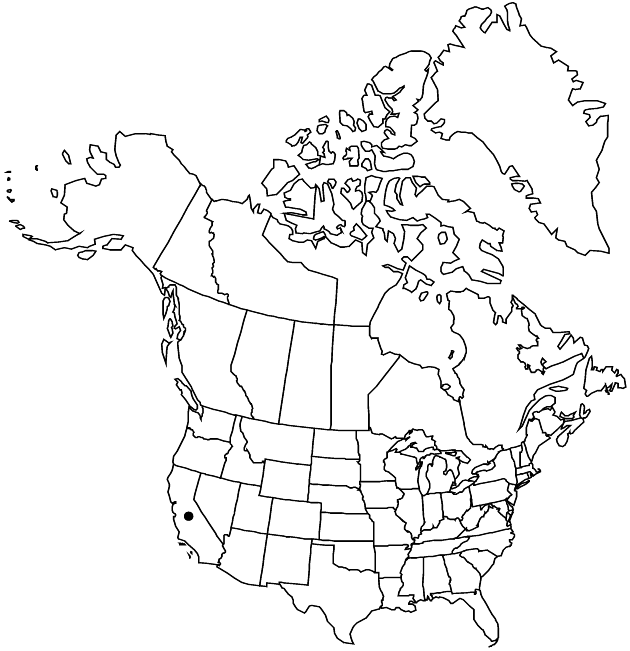Difference between revisions of "Anisocarpus scabridus"
Novon 9: 463. 1999.
Basionym: Raillardella scabrida Eastwood Bull. Torrey Bot. Club 32: 216. 1905
Synonyms: Raillardiopsis scabrida (Eastwood) Rydberg
FNA>Volume Importer |
FNA>Volume Importer |
||
| Line 10: | Line 10: | ||
|name=Raillardella scabrida | |name=Raillardella scabrida | ||
|authority=Eastwood | |authority=Eastwood | ||
| + | |rank=species | ||
|publication_title=Bull. Torrey Bot. Club | |publication_title=Bull. Torrey Bot. Club | ||
|publication_place=32: 216. 1905 | |publication_place=32: 216. 1905 | ||
| Line 16: | Line 17: | ||
|name=Raillardiopsis scabrida | |name=Raillardiopsis scabrida | ||
|authority=(Eastwood) Rydberg | |authority=(Eastwood) Rydberg | ||
| + | |rank=species | ||
}} | }} | ||
|hierarchy=Asteraceae;Asteraceae tribe Heliantheae;Asteraceae (tribe Heliantheae) subtribe Madiinae;Anisocarpus;Anisocarpus scabridus | |hierarchy=Asteraceae;Asteraceae tribe Heliantheae;Asteraceae (tribe Heliantheae) subtribe Madiinae;Anisocarpus;Anisocarpus scabridus | ||
| Line 41: | Line 43: | ||
-->{{#Taxon: | -->{{#Taxon: | ||
name=Anisocarpus scabridus | name=Anisocarpus scabridus | ||
| − | |||
|authority=(Eastwood) B. G. Baldwin | |authority=(Eastwood) B. G. Baldwin | ||
|rank=species | |rank=species | ||
| Line 56: | Line 57: | ||
|publication year=1999 | |publication year=1999 | ||
|special status= | |special status= | ||
| − | |source xml=https://jpend@bitbucket.org/aafc-mbb/fna-data-curation.git/src/ | + | |source xml=https://jpend@bitbucket.org/aafc-mbb/fna-data-curation.git/src/eaa6e58056e40c9ef614d8f47aea294977a1a5e9/coarse_grained_fna_xml/V19-20-21/V21_735.xml |
|tribe=Asteraceae tribe Heliantheae | |tribe=Asteraceae tribe Heliantheae | ||
|subtribe=Asteraceae (tribe Heliantheae) subtribe Madiinae | |subtribe=Asteraceae (tribe Heliantheae) subtribe Madiinae | ||
Revision as of 19:38, 16 December 2019
Plants 10–50 cm (stems hirsute and stipitate-glandular). Leaf blades blue-green to grayish blue-green, 10–30 × 1–4 mm, margins entire, apices acute or obtuse. Involucres broadly ellipsoid to campanulate, 6–12 mm. Ray florets 0 or 1–3. Disc florets 5–23, bisexual, fertile. Ray cypselae ± obcompressed, 6–8 mm. Disc pappi of 11–21 subulate, ciliate-plumose scales 4–7 mm. 2n = 14.
Phenology: Flowering Jun–Sep.
Habitat: Open ridges and slopes, on metamorphics
Elevation: 1600–2400 m
Discussion
Of conservation concern.
Anisocarpus scabridus occurs mostly in the Inner North Coast Ranges, with interior outliers in the southern Cascade Range.
Selected References
None.
Lower Taxa
None.
